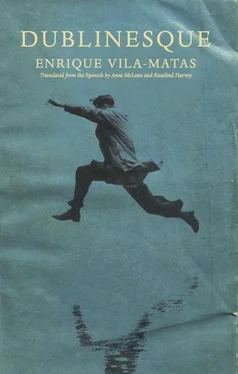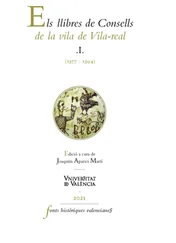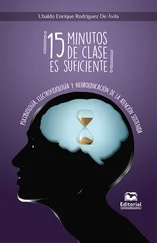He thinks about Nietzky and ends up thinking of Celia. He wouldn’t like her to find him, once again, engrossed in front of the computer when she gets back from work at a quarter to three. He doesn’t switch it off, but stops looking at it and sits there trying to decide what to do, looking at the ceiling. Then he checks his watch and realizes that it doesn’t matter, as Celia will soon be home. He goes to look out the window and then to stare at a stain on the roof, in which he suddenly thinks he can see a map of his native country. He remembers, he remembers quite well the culture of his compatriots that became dangerously oppressive and familiar to him. He remembers his desperate leap to France, his by now so outdated French leap. Paris allowed him to flee from Franco’s eternal uncultured summer, and later on to meet writers such as Gracq, Philippe Sollers, and Julia Kristeva, or Romain Gary, one of the friendships he feels most proud of. It doesn’t escape his notice now that many of those who find Ulysses unbearable haven’t even bothered to get past the first page of a book they assume is leaden, complicated, foreign, lacking the “authentic and proverbial Spanish wit.” But he assumes that this first page of Joyce’s book, just the first page, is enough on its own to dazzle. It’s an apparently trivial page, which nevertheless presents a complete and extraordinary world. He knows it by heart in the now legendary version by that first translator of the book into Spanish, that translator as brilliant as he was strange, the great adventurer J. Salas Subirat, an Argentine autodidact who worked as an insurance broker and wrote a strange manual, Life Insurance , which Riba published as a curiosity, at the start of the ’90s.
He leaves the window and goes to the kitchen and as he walks down the hall he thinks about the opening of Ulysses , so apparently flat, although really this beginning gives off a harmony rarely forgotten. It takes place up on the gun platform of the Martello tower, built in Sandycove in 1804 by the British army to defend against a possible Napoleonic invasion:
Stately, plump Buck Mulligan came from the stairhead, bearing a bowl of lather on which a mirror and a razor lay crossed. A yellow dressinggown, ungirdled, was sustained gently behind him by the mild morning air. He held the bowl aloft and intoned:
— Introibo ad altare Dei.
Halted, he peered down the dark winding stairs and called up coarsely:
— Come up, Kinch. Come up, you fearful Jesuit.
Solemnly he came forward and mounted the round gunrest.
He’s sure that, when the moment comes, he’ll enjoy being up on the circular gun platform, where this legendary scene from Ulysses takes place. Moreover, very near to there, in Finnegan’s pub in the village of Dalkey, is where his young friend proposes that the first meeting take place of the Order of Knights — to be named the Order of Finnegans after this very pub, and not after Joyce’s book of the same name — which his friend wants to found on June 16 itself.
The news that this will take place has just arrived in an instantaneous electronic reply from Nietzky. Simply because it comes from Nietzky, the creation of this kind of Finnegansean club strikes him as a good idea. Couldn’t he, in his melancholy, stand to be in a few clubs and some meetings? In any case, anything Nietzky comes up with or writes usually seems pertinent. What’s more, the email has arrived at just the right time, and has made him very happy because it’s arrived in the middle of a series of messages from other people in which — with no change in the trend that’s established itself in the messages he’s received lately — no one invites him to anything, not one conference or publishers’ meeting, nothing at all; they just pester him with trivial matters or ask him for favors. In a way, they’re forgetting about him without forgetting him.
He’s been prudent with Ricardo and Javier, but with Nietzky he’s going to act in a very different way. He will dare to tell Nietzky that in Dublin he wants to hold a requiem for the Gutenberg galaxy, for this galaxy, now a pale fire, of which Joyce’s novel was one of the great stellar moments. And it’s not just that he plans to tell Nietzky this; he’s telling him right now in the email he’s writing.
Without any sort of preamble or overly complicated explanation, he tells Nietzky he wants to take the English leap — he hopes he gets what he means, and that in the long run, with his particular talent, he might even broaden the expression’s meaning — and he explains, moreover, that he’s thought of holding a requiem for the end of the Gutenberg era, offering a requiem about which all he knows, for now, is that it should have something to do with the sixth chapter of Ulysses . A funeral in Dublin, he says, and stresses this. A funeral not just for the extinct world of literary publishing, but also for the world of genuine writers and talented readers, for everything that’s needed nowadays.
He’s sure that sooner or later Nietzky will come up with some ideas for the funeral rites, will suggest, for example, where to hold them. St. Patrick’s, the cathedral, is a seemingly appropriate place for the ceremony, but there may be others. He’s also sure Nietzky will end up telling him which words to use to give a dignified send-off to the Gutenberg era. In any case, it would be good and opportune to link the funeral with Ulysses ’ chapter six. It’s the only thing that seems self-evident to Riba, especially when he sees — although he keeps this to himself — how Javier, Ricardo, and young Nietzky have already started to seem like living replicas of the three characters — Simon Dedalus, Martin Cunningham, and John Power — who accompany Bloom in the funeral procession crossing the city to Glasnevin Cemetery on the morning of June 16, 1904.
It doesn’t escape Riba that it’s characteristic of the imagination always to consider itself to be at the end of an era. For as long as he can remember he’s heard it said that we are in a period of maximum crisis, a catastrophic transition toward a new culture. But the apocalyptic has always been there, in every era. We find it, for instance, in the Bible, in the Aeneid . It exists in every civilization. Riba understands that in our time the apocalyptic can only be dealt with parodically. If they manage to hold this funeral in Dublin, it can’t be anything other than a great parody of the weeping of a few sensitive souls for the end of an era. The apocalyptic demands a lack of excessive seriousness. After all, ever since he was a boy he’s been sick and tired of hearing that our historical and cultural situation is uncharacteristically terrible and in a certain way privileged, a cardinal point in time. But is this really true? It seems doubtful that our “terrible” situation is so different from that of our ancestors, as many of them felt the same as we do, and as Vok puts it, if our criteria seem satisfactory to us it would have been the same for them. Any crisis, after all, is just a projection of our existential anxiety. Perhaps our only privilege is to be alive and know we’re all going to die together or separately. In the end, thinks Riba, the apocalyptic has a splendid fictional veneer, but it shouldn’t be taken too seriously, because actually, if I look at it properly, what it offers me is the joyful, emphatic, and happy paradox of a funeral in Dublin, that is, it offers me what I’ve been most in need of recently: something to do in the future.
Nietzky doesn’t always reply to emails straight away. He soon sees that Nietzky’s speedy reply to his previous email was an exception to the rule. The minutes go by and he starts to see that Nietzky isn’t prepared to reply so swiftly now.
Читать дальше












